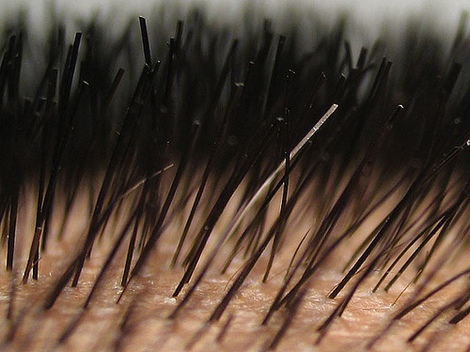How to Prevent Scalp Diseases
Some experts say that the scalp is one of the most neglected areas of our body. Moreover, a frequent use of hair dyes, harsh chemical procedures, and even “healthy” hair-care remedies that are often loaded with petroleum by-products and other undesirable ingredients can easily damage the scalp and induce a wide range of conditions – from dryness and inflammation to dermatitis and even baldness!
What are the best ways to take care of the scalp and prevent the occurrence of itchiness, flaking and other scalp illnesses? The top tip is not to abuse your scalp! Gentle care is the most fitting approach to preserve the health of both your scalp and hair.
On a daily basis, the scalp comes in contact with many “irritants” – brushes, shampoos, bleaches, synthetic dyes, laboratory-produced chemicals, sprays, pomades, gels… In addition, we tend to expose our heads to extremely hot air coming from blow dryers, which damages the sensitive skin of the scalp and can provoke inflammation.
Although the scalp is the thickest area of our skin, modern cosmetic products give it a hard time, says dermatologist Christopher Payne of the London Clinic. The scalp is covered by a relatively thick layer of epidermis. Right underneath the epidermis, there are hair roots, or follicles, which are responsible for the thickness and health of our locks. The follicles are rooted in the dermis and fat layer located about four millimetres below the surface of the scalp.
The hair roots are surrounded by numerous capillaries, or tiny blood vessels that ensure a rich supply of oxygen and nutrients that nourish our hair. Although the number of those hair roots can vastly differ from person to person, thick and strong hair shafts usually come from big, deeply-rooted hair follicles. When the scalp is damaged, its skin and fat layer can become narrower than it should be, which can also hurt the hair follicles and induce hair loss, says Barry Stevens, a member of the Trichological Society.
Hair roots have their own supply of lubricating substances that originate in sebaceous glands. An overproduction of sebum in these glands can result in oily scalp, while its underproduction can lead to dry, easily irritated skin and even the development of such conditions as sebhorrheic dermatitis, dandruff, or scalp psoriasis.
While taking care of your scalp, try to avoid excessive shampooing, over-drying, or a frequent exposure to styling procedures or artificial chemicals found in many hair-care products. It is advisable to use mild cleansers and limit the application of hair products and dyes. When washing your scalp and hair, gently massage the leather with the tips of your fingers, but not the fingernails, in order not to damage a delicate surface of the scalp.
For many years, scientists have been striving to find possible causes of such scalp diseases as dandruff, sebhorrheic dermatitis, patchy hair loss and psoriasis. Dr. Rowland Payne points out that intense blood flow can be involved in the development of some of these conditions. Since blood capillaries react to irritants and increased temperature, scalp overstimulation can be a possible trigger. Scalp blood flow can increase in response to stressful factors, hormonal fluctuations and mechanical triggers, such as excessive brushing or washing your hair in hot water. Even eating spicy foods, abusing alcohol, smoking, or being overweight may enhance blood flow to the scalp and contribute to the development of irritation, itchiness and flaking.
Dandruff and other scalp diseases can be reduced by using medicated shampoos, such as Head & Shoulders or Nizoral. Those who suffer from dry scalp, severe dandruff, or sebhorrheic dermatitis, should take care not to over-stimulate their scalp by excessive washing, blow-drying, and massaging.
Another scalp condition, which is especially typical for people using synthetic hair dyes and bleaches, is allergic contact dermatitis that is characterised by extreme soreness, eczema and scaling. Acute inflammation can be treated by topical steroid medications and sufferers should avoid using most hair-colouring products in the future.
Scalp psoriasis, which manifests as red, inflamed, scaly areas, can be controlled by topical applications of coconut oil or shea butter, in addition to prescribed pharmaceutical treatments.
Christiana Roberts
Posted on June 27, 2008
Filed Under Hair Care
Comments
One Response to “How to Prevent Scalp Diseases”
Leave a Reply


Another potential scalp soother is emu oil. It penetrates the scalp better than most products due to it’s lack of phospholipids. In addition to helping conditions like psoriasis and dandruff, it may also prevent hair loss.